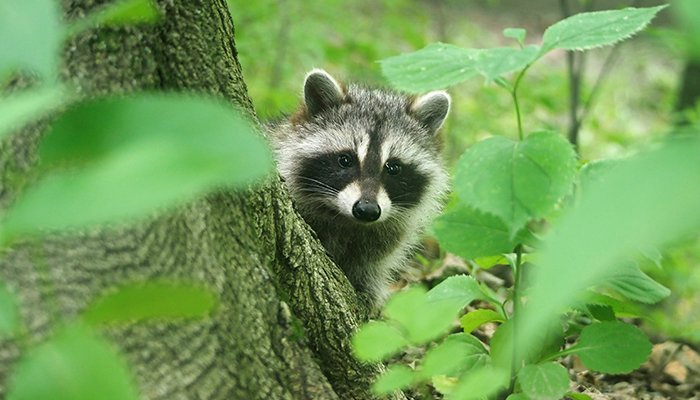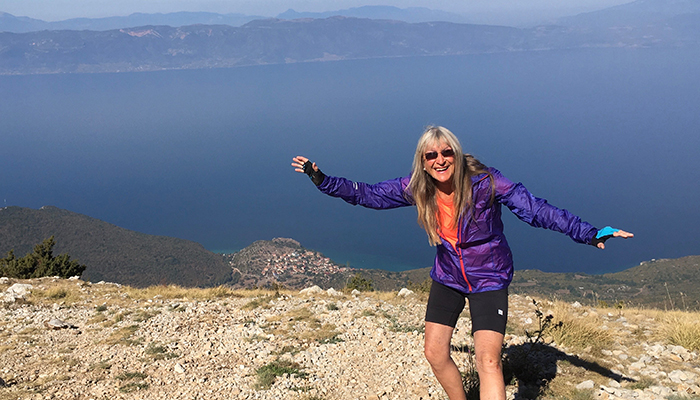Fieldnotes: Greetings from the great indoors

Well, it’s a far different world from just a few weeks ago, though it would probably do us even more good now to spend some quality time tending to a yard or balcony garden.
We also know that looking at adorable animals improves mental well-being, as our brains are built to deliver dopamine and oxytocin when we see cute critters (or babies, which is why this biological response evolved in the first place). So, we’ll be ramping up our cuteness content — like this amazing polar bear family video we posted on Facebook and Instagram — to help us all deal with what’s going on.
We will also continue working remotely from our homes to safeguard species and nature while also trying to make your time at home a little more bearable (animal pun totally intended). We have several efforts in the works, beginning with Wildlife Wednesday.
Every Wednesday we’ll profile a different iconic Canadian species in a morning social-media video followed by a 2 p.m. EST Facebook Live stream with one of our scientists who will answer questions. Here is our first video featuring the narwhal and the Facebook Live stream with our wildlife expert, Brandon Laforest. Follow our Facebook and Twitter accounts for up-to-date info. We also have other plans in the works, including helping you become a citizen scientist from your backyard or your window.
Yes, this situation is a lot to handle. But we can get through it. We just have to work together — but separately — to keep friends, family and strangers safe so that we can return to the old normal as soon as possible.
#VirtualCNTowerClimb
This year is the 30th anniversary of the CN Tower Climb for Nature. Unsurprisingly, we won’t be climbing the CN Tower this year. But that doesn’t mean we can’t still work up a sweat for nature on April 4 and 5.
Instead of climbing 1,776 steps up 144 flights, we’re challenging our supporters to do a “virtual” CN Tower Climb for Nature. This can be done in many ways. As long as you maintain a safe two-metre distance from others, you can walk 17,760 steps (about 13 km) for wildlife. Go up and down the stairs 144 times, use a stair machine or do your own backyard or online dance-a-thon.
We will even have instructors from Toronto’s Junction Fitness leading several virtual climb-themed fitness classes over the course of the weekend that you can join via Zoom. They will be 29:36 minutes each, or 1,776 seconds! (Watch for emails from the CN Tower Climb team for more details.)

And if you need inspiration, take it from Dee Simpson, 77, who has already done her virtual climb and raised over $750. She bounded up 144 flights of stairs in a 22-storey condo stairwell (taking the elevator down and then climbing again) and she did it in 23 minutes and 47 seconds. Yes, really!
As Dee told us in an email, “Not too shabby for a septuagenarian fast approaching 78 years young!”
Participants can use a phone or fitness tracker — and the hashtag #VirtualCNTowerClimb — to show their donors and community that they’ve achieved their goals. As WWF-Canada’s most significant fundraiser, the donations collected support our vital conservation work and we appreciate your enthusiasm and support as we continue to fundraise for wildlife during this unprecedented situation. As a reminder, please refrain from going door-to-door to collect donations. Instead, share the link to your personal fundraising page through your email communications and social media posts. To create your personal fundraising page, register for the virtual climb here.And if your little ones are feeling creative, we encourage them to draw their favourite wild animal for you to post on social media. Normally, we’d have these images line the stairwells in the tower to encourage climbers. We’d love to see these drawings up on social media so our virtual climbers can feel the love. Don’t forget to use the hashtag #VirtualCNTowerClimb.
Earth Hour 2020 shines a light on biodiversity loss and climate change

Earth Hour, the world’s largest grassroots movement for the environment, will once again unite millions around the world on Saturday, March 28 at 8:30 p.m. local time. This year won’t see the usual major celebrations, concerts or public countdowns for this symbolic hour, but in these challenging circumstances, Earth Hour marks a much-needed moment of solidarity for our planet.
Started by WWF and partners in 2007 as a symbolic “lights-out” event in Australia, Earth Hour has become part of a worldwide movement demonstrating the power of people to drive environmental change. We’ve seen students and adults raise their voices during massive climate strikes.
We’ve seen voters demand stronger action to fight climate change and protect the environment. And we’ve seen that nature can play a major role in offering solutions to these challenges. Nature is the planet’s life-support system and WWF-Canada is leading the work on nature-based solutions that will fight climate change and biodiversity loss. But we can’t do this alone.
It might just be sixty minutes, and during another crisis, but participating in Earth Hour demonstrates your commitment to nature. This year, we’re asking everyone to turn off their lights as a call to action for nature-based climate solutions, healthy freshwater, Arctic conservation and protection of wildlife and their habitats.
So how can you participate in Earth Hour 2020?
- Turn off non-essential lights at 8:30 p.m. local time.
- Encourage your friends and family to participate at home or virtually.
- Share your plans on social media by using the hashtag #EarthHour and #Connect2Earth. Don’t forget to tag @WWF-Canada in your posts!
- Tell others why you are partaking in Earth Hour and what it means to you.
Make sure to tune in to our social channels on Saturday to see how our conservation staff across Canada are celebrating Earth Hour.
